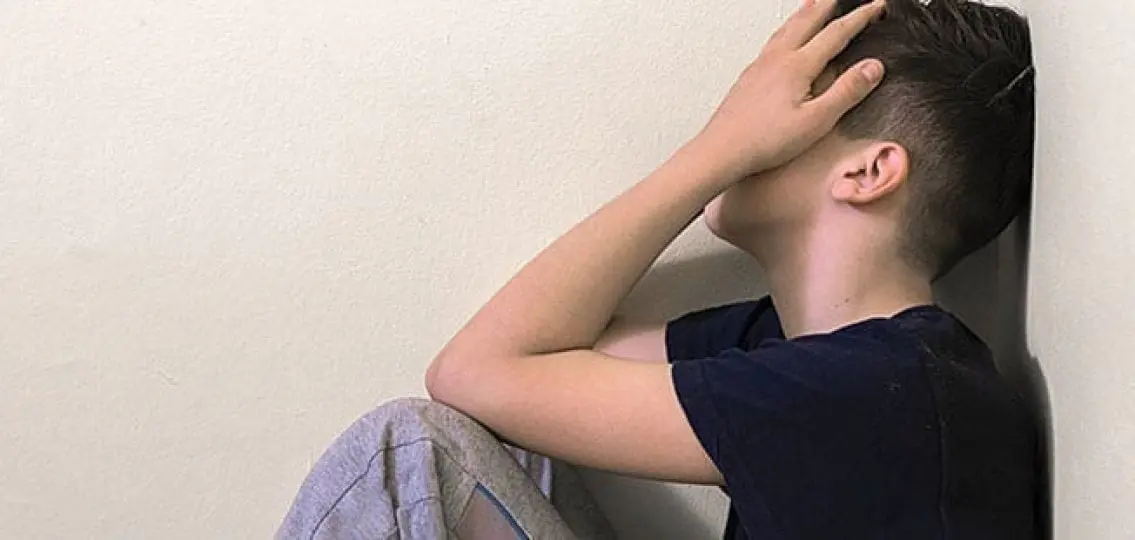It happened again just yesterday, out of the blue: an innocent call from a friend whom my husband and I had not seen in a while. He was coming to our town to watch his son play a big lacrosse game against our local high school. Sure we said, we would be glad to meet up with him.

As we walked behind the arena to the lacrosse field, we were struck by that all-too-familiar wave of sadness. There, lined up along the field, were all the folks that we used to know. There, on the field, were many of our son’s former teammates, boys he had grown up with.
Our son, a natural athlete, should have been out there, too. It was one of those games, historic in nature. The visiting team had been undefeated for many years. It was a terrific game and we won in overtime.
As the boys from our town rushed the field in euphoria, we were crushed that our son was not out there among them. He was at home playing on the computer. He had no interest in going to the game with us. It was another painful reminder of the important social experiences our son was missing out on because his anxiety forced him to quit—lacrosse, soccer, baseball, and eventually the one sport he truly excelled at, ice hockey.
Living with a child who has an anxiety disorder is complicated, frustrating, exhausting, isolating, and heart-breaking.
It’s not at all what we expected raising a child would be like.
Children who suffer from mental illness rarely have only one diagnosis. Our 16-year-old son has also been diagnosed with a rip-roaring case of ADHD, peppered with oppositional defiance disorder (ODD), and sprinkled with obsessive compulsive disorder (OCD). But it is the anxiety disorder that causes the most trouble.
Anxiety is one of the most common emotional disorders, and it appears to be increasing. Our bright, funny, kind, sensitive, athletic boy with amazing coordination and balance can be taken down without warning by a wave of nausea and stomachaches. Anxiety is related to our survival instinct. It is a fear (think fight or flight) response when there is no actual danger or threat, like a false alarm ringing within your body.
Anxiety is one of those invisible disabilities that people don’t understand, so they often pass judgment.
The telephone calls from the school nurse began in the third grade. Our son was not feeling well and complaining of pains in his stomach. We needed to come and get him. Once we were in the car and pulling away from the school, a wave of relief would wash over his body and he was fine.
The same thing would happen while he was playing sports. During games he was often sidelined because of nausea and stomach pain. This would happen on and off until 8th grade, when he was in such distress, we needed to hospitalize him. It was then that we decided to pull him from the public school system. And it was then that the bed-wetting (which periodically plagued him from September to June) stopped.
We learned early on not to ask our son if he wanted to go and do “xyz”. No matter how great a place or fun an experience it would be, he would always say no. When our son was in 5th grade, we made the mistake of surprising the kids with a trip to Disney World. He began to cry as we pulled into the airport. He would not get out of the car even though he knew Disney World was a kid’s paradise. If he had no reference or understanding of what the experience entailed, it was safer and less anxiety-producing to just say no.
He has always been much more comfortable staying home playing video games and socially isolating himself. The ongoing battle to limit time with electronic gadgets has driven a wedge in our relationship with him. He resents the fact that we are so strict with electronic time and that we force him to do things that he has no interest in doing. It is exhausting to “convince” our son to participate in extracurricular activities. We work extremely hard to get him to every meeting or rehearsal. We have worked for years with many therapists, doctors, and psychiatrists on behavior modification psychotherapy and different medications.
These remedies have provided some relief, but battling anxiety is still a daily struggle for our son, and for us.
When internalized, the emotional pain of anxiety manifests in depression and loss of self-esteem. If the emotional pain is too much to bear, he will cut. When externalized, the angst is expressed in rage-filled tantrums.
Because of our son’s inability to regulate his emotions, his peers have rejected him. He has been subjected to all sorts of teasing and criticism. He is extremely sensitive to his perception that other people disapprove of him. This has led him, at times, to play the part of people-pleaser, always making sure other individuals approve of him. In addition, the pain of failure is so great that he often refuses to try anything unless he is assured quick and easy success. Taking a chance on something novel is too big an emotional risk.
When left untreated, a teen with an anxiety disorder is at higher risk to perform poorly in school, miss out on important social experiences, and engage in substance abuse. They will avoid sports and other extracurricular activities, and their self esteem suffers.
If our son can’t defeat his anxiety disorder (that “bully in his brain”), our fear is that his life will become stunted and limited, even more than it already has.
But there is always hope.
And we try to remain optimistic and extol the victories along the way, no matter how small and insignificant they might seem to “typical” families. For instance, considering our son struggles with anxiety, it is nothing short of a miracle that he is performing in his second musical. Though his parts have been small, and we struggle to get him into the car for every rehearsal, he is singing and dancing on a stage in front of an audience. And when parenting an anxious teenager, this is something to celebrate.

The author lives in New England with her husband and two sons, 13 and 16, both of whom were adopted and struggle—to varying degrees—emotionally and socially with learning and executive function disabilities, anxiety, ADHD, reading social cues, and thus making and keeping friends.




